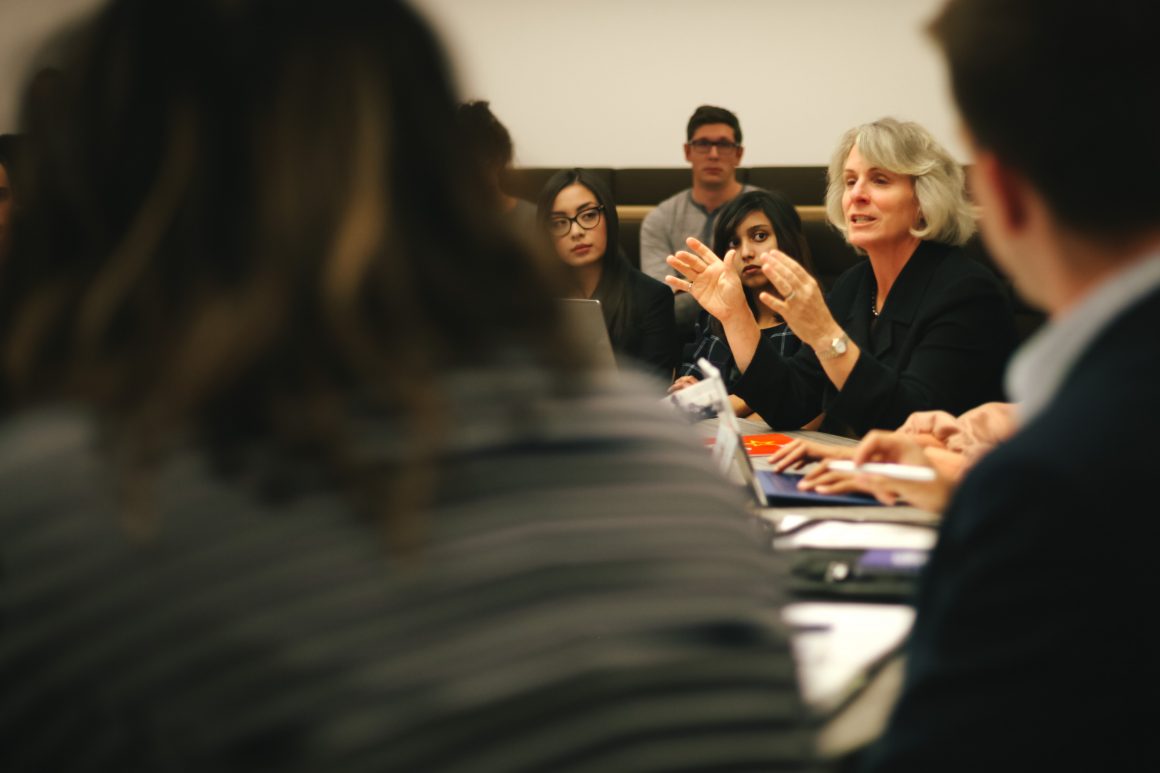
Report finds that U of C’s Enbridge relationship compromised academic integrity
By Jason Herring, October 11 2017 —
A new report released by the Canadian Association of University Teachers (CAUT) asserts that the University of Calgary’s relationship with energy company Enbridge compromised academic freedom and integrity on campus.
The 112-page report says U of C president Elizabeth Cannon had a “clear appearance of a conflict of interest” due to her paid position as an Enbridge board member during the creation of the Enbridge Centre for Corporate Sustainability. It adds that U of C faculty members were intimidated to speak publicly about the situation, citing concerns about damaging their career.
Controversy surrounding Enbridge’s relationship with the U of C came to light after a 2015 CBC investigation revealed that Enbridge had significant influence within the university as a result of a large donation. In response, the U of C launched an investigation led by retired Justice Terrence McMahon, which cleared Cannon and the U of C of any wrongdoing.
The U of C Board of Governors released a written statement after receiving CAUT’s report.
“The Board of Governors’ position remains that the McMahon Report is the proper, comprehensive and independent review of matters connected to the Enbridge Centre for Corporate Sustainability, and that the CAUT investigation lacks legitimacy,” read the statement attributed to BOG chairman Gordon Ritchie.
“The Board of Governors considers the Enbridge matter closed,” the statement concluded.
Ritchie’s comments echo previous statements from U of C regarding the CAUT investigation, which dismissed the review’s veracity while citing the McMahon Report as the only legitimate investigation. CAUT’s report addresses this, saying that the U of C mischaracterized the McMahon Report as independent and that “the conclusions [McMahon] reached also appear to us to have given significant benefit of the doubt to senior U of C officials.”
CAUT executive director David Robinson said the dismissal of the newly released report indicates that the U of C is choosing to ignore important issues.
“To brush it all aside does a disservice to the institution and to what I think are very legitimate issues and concerns that have been raised not just by CAUT, but by the academic community at the university as well,” he said.
The report also provides recommendations such as for the U of C to review its governance structure and conflict of interest policies, as well as for Cannon and the U of C BOG to publically acknowledge wrongdoing.
A theme within the report is faculty members expressing intimidation and fear of repraisal.
“When academics raised concerns, they were rebuffed by the senior administration,” Robinson said. “One of the most troubling things that came out of the report to me was the observation by the committee that they really encountered a culture of fear.”
“I don’t think it serves the public very well if a university like the University of Calgary is a place where academics feel afraid to speak out,” he added. “It runs contrary to the notion of what a university should be.”
CAUT first accused the U of C of hindering their report in April 2016, when U of C provost Dru Marshall sent an email to all faculty members regarding the CAUT’s investigation which said that CAUT is not bound by the university’s confidentiality and privacy rules. At the time, Marshall defended the email — which included the McMahon Report — saying it was merely informational.
Only two professors, both of whom no longer work at the U of C, agreed to speak on the record during CAUT’s investigation.
When asked for comment about the report, the Students’ Union sided with the McMahon report, but encouraged conversation around academic freedom.
“Our stance on it is that the McMahon Report stands as the comprehensive, independent report, but we’re happy to see that the conversation about academic freedom has been a major component of the university for the last couple of years,” SU president Branden Cave said. “We’ve considered it closed since [the McMahon Report was released].”
The report marks the end of CAUT’s formal investigation, but Robinson said that if controversies persist at the U of C, they may revisit the issue.
